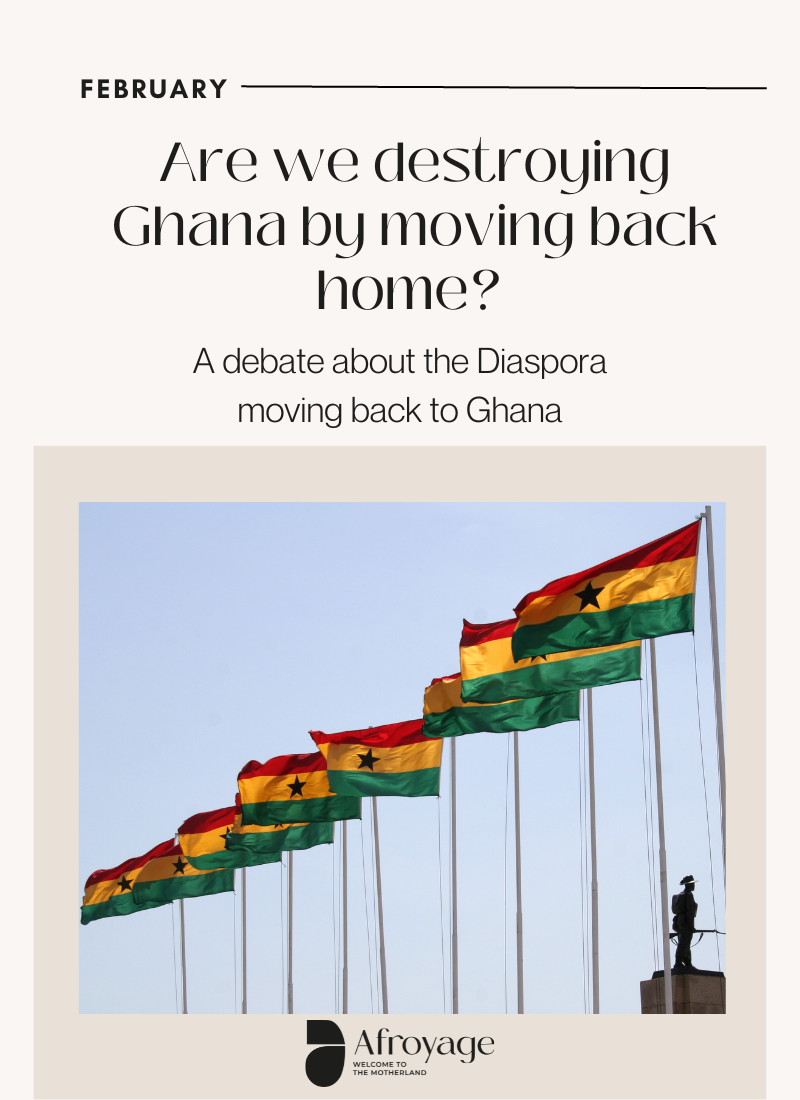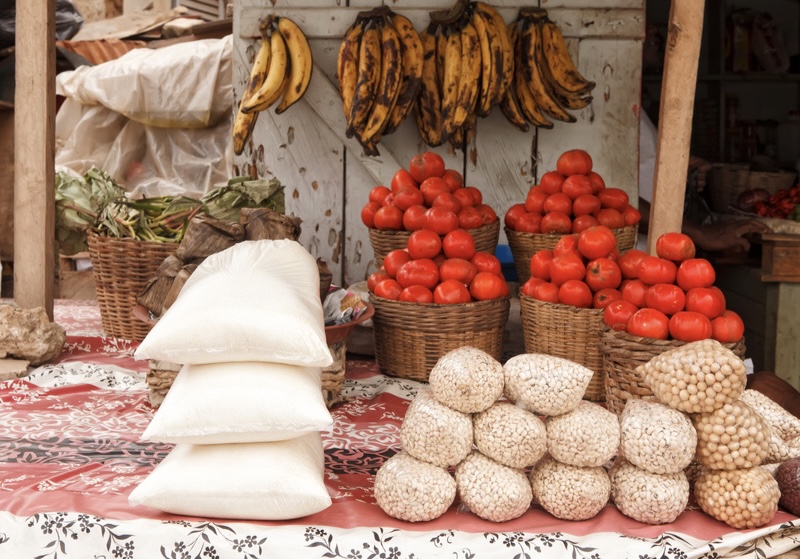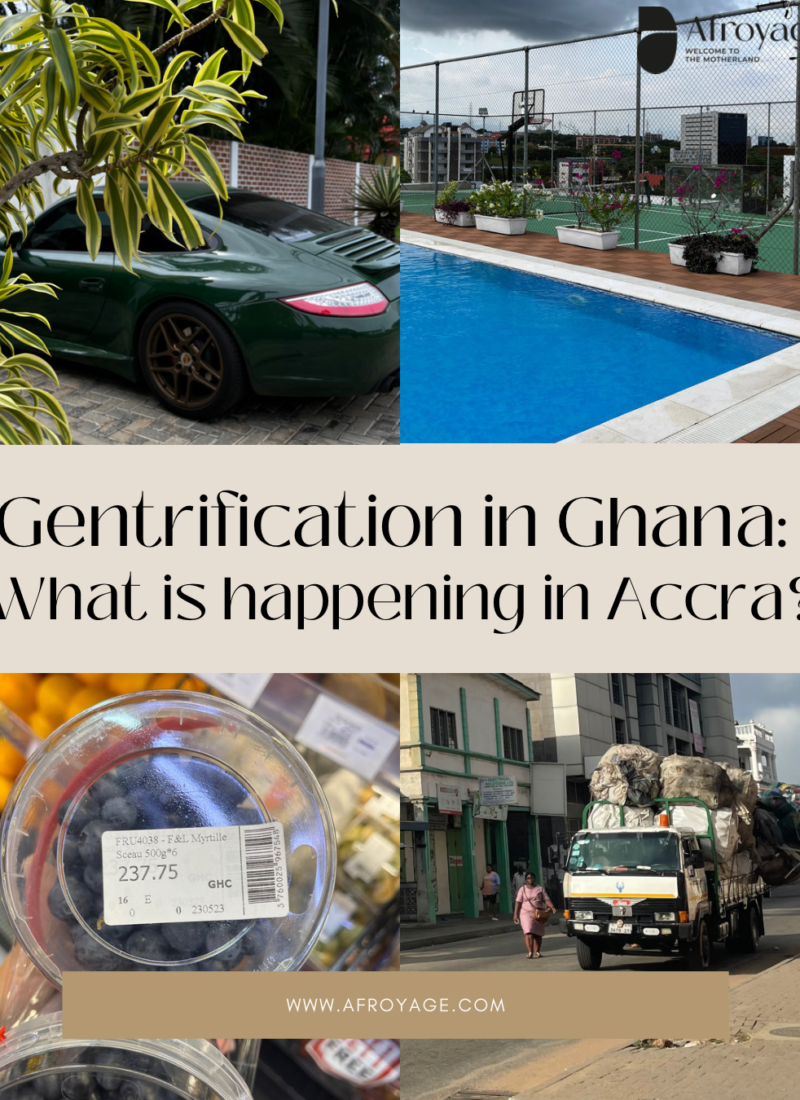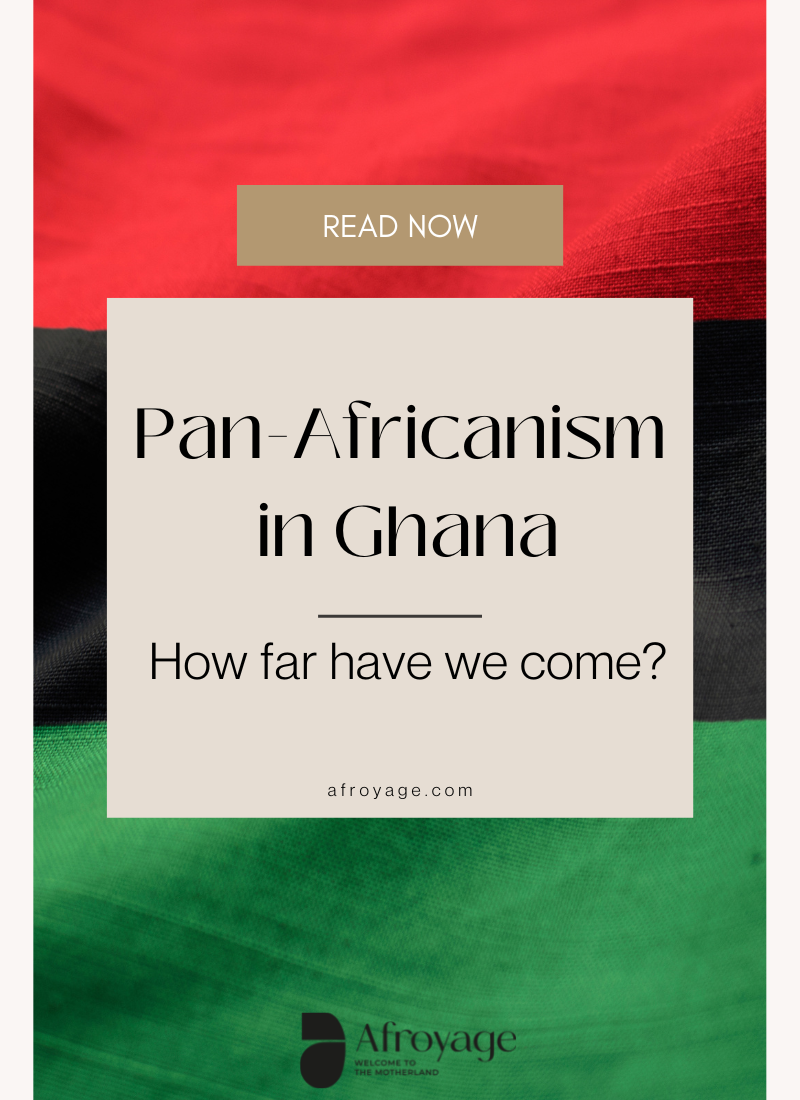The Ghanaian Diaspora is a force to be reckoned with.
It was estimated that in 2017, 15 million Ghanaians were living outside the country, most of them in Europe and the United States.
This number is expected to rise to 20 million by 2030 as more African countries begin making their migration policies.
A lot can be said to be the cause of this movement back home. For instance, in 2019 the president undertook “The Year of Return” initiative.
What the president sought to do with this initiative was to bring foreigners to tour the country and invest back home.
While others are happy, others are blatantly furious.

So what are their motivations?
As you might expect, there are many motivations behind moving back home.
Some people want to improve their country by returning to the place they grew up and made their name. Others want to be with family or friends who have already moved back home, while others simply want to connect to their roots.
Then some move back because they miss the environment and feel like they can find peace in the country’s beauty and solitude after living abroad for several years.
Culture Shocks
What culture shock implies is that the beliefs of foreigners and citizens are at war.
Whilst the argument of the foreigners remains about promoting human rights, Ghanaians are more leaned toward their moralities.
What a foreigner considers normal, a Ghanaian will consider a blunder. The most referenced scenario has to be that of the LGBTQ+ situation.
There has been a call by the foreigners to allow them to practice their sexualities which the indigenes have been against even before the arrival of the foreigners. This is one area where the difference in mentality and culture is very clear.

For the time being, the war is still going on between the two camps with each not ready to back down.
The government itself has reiterated its views such laws will not be passed but only time will tell if they will eventually succumb to the pressure of the foreigners.
There have been several protests in the community, especially regarding this topic.
Let's talk business
The VISA processing has been done. They are now citizens of the country. Now how do people from the Diaspora survive? Opening businesses of course.
Another reason why people in the Diaspora move back is because of the super competitive nature of business abroad, which leads to many people moving back to open businesses in a less competitive environment.
This mostly happens to be at the expense of the local businesses. The goods they sell to the market are relative of better quality and cheaper price.

This is due to the fact that they have enough money to operate at rates that can help them achieve economies of scale and have more capital to undertake business faster and easier.
So, what do the local businesses do? Pack up because they can not keep up with their new competitors anymore.
Despite this not being a particular issue for any uprising, it is being discussed within echo chambers and the best the locals can do is to insult the government to “give us our jobs back” while the foreigners blossom in their newfound goldmine.
"Artificial inflation"
Another impact of the diaspora is how they spend their money.
When people move back home, they don’t spend like locals anymore. The economic advantages of having capital in superior currencies leads to them having much more purchasing power compared to the average Ghanaian.
This means their influx leads to a hike in the demand for goods and naturally, the cost of goods as such goes high.
This leads to artificial inflation of the currency and cost of living.

THE GOOD
To be fair, the arrival has beefed up business activities in the country. Now that migrants have brought their businesses down again, there will be more competition which leads to giving the best services to customers.
It also drives up the seriousness of the locals to stay in business. They do this by mostly reducing the price of their goods or increasing their quality of them.
This significantly impacts the customers well. So, this has helped in stabilizing the price of goods in the country because everyone wants their goods to be affordable to the customer.
Furthermore, many highly skilled migrants coming home from high-income western countries with newly acquired social, financial and human capital tend to be of high value in the world of business.
Having lived in a completely different environment with different rules and regulations allows them to bring a new perspective.

At the end of the day, the debate about the diaspora moving back into Ghana has not been defined by partisan politics. It is more an argument of values and ideas.
Those who are against the idea of their country’s diasporic population returning home often do so for moral reasons:
They believe that the benefits of migration have been exaggerated or that it will cause destabilization in society.
Other opponents argue that there should be restrictions by the Ghanaian government on the granting of visas to people from the Diaspora and also restrictions on how long they stay.
It is clear, that the whole topic of people from the Diaspora retuning back home is a difficult one with many pros and cons.
What’s most important is, that return migration should never increase inequality.





Leave a Reply
You must be logged in to post a comment.